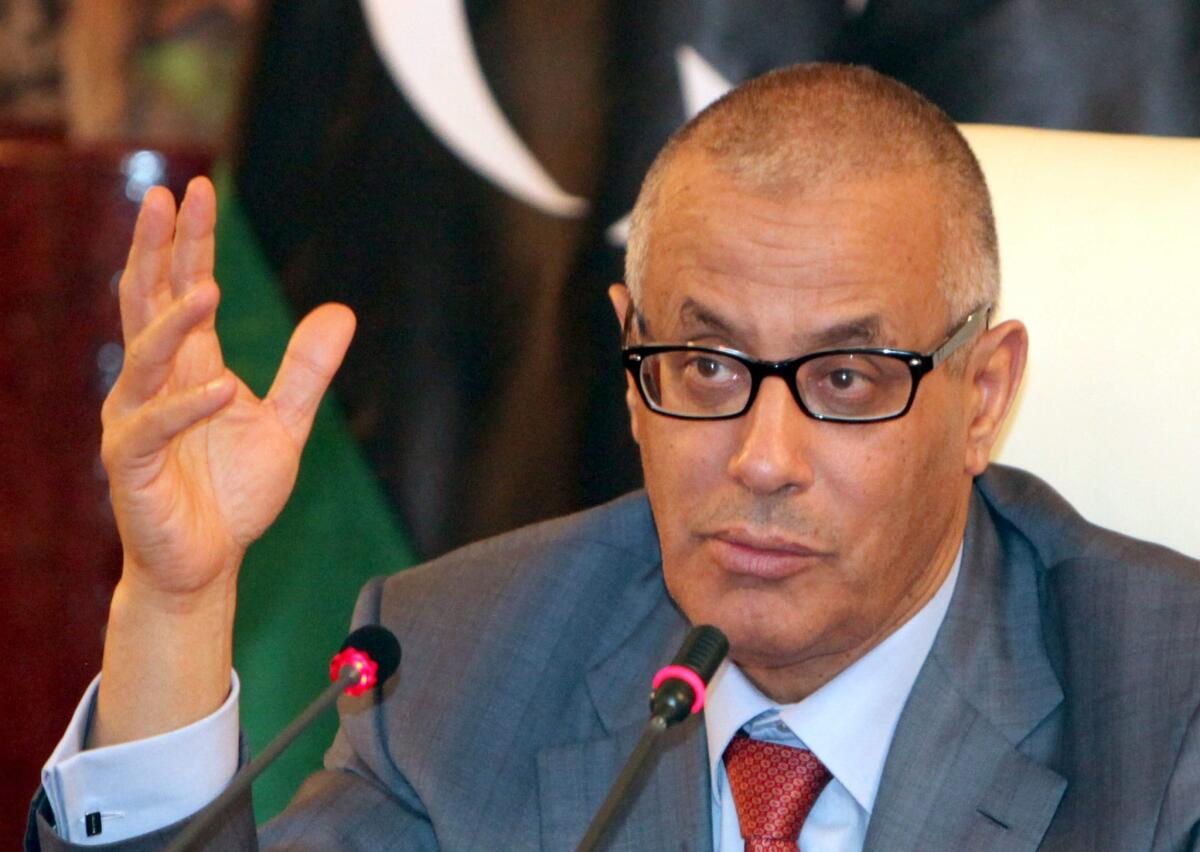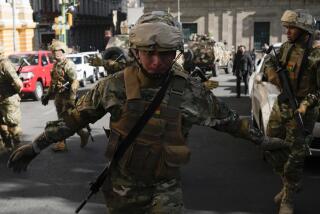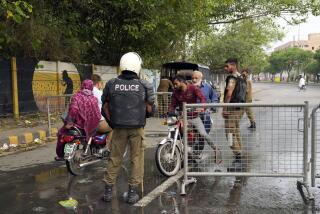Libyan prime minister abducted, freed; militia cites U.S. raid

- Share via
CAIRO -- Libya slipped deeper into turmoil Thursday when gunmen staged a brief but brazen abduction of the country’s prime minister, storming into a luxury hotel in the capital, Tripoli, and seizing him. He was freed hours later, Libya’s state-run news agency reported.
The circumstances of Prime Minister Ali Zidan’s release were not immediately clear.
[Updated, 7:53 a.m. PDT Oct. 10: At a Cabinet meeting following his release, Zidan thanked the “real revolutionaries” who helped to free him but provided no details, according to the BBC.]
Earlier, the state Libyan Arab News Agency had said he was detained by a group called the Brigade for the Fight Against Crime, which is made up of former insurgents and has links to the fragile government.
The Reuters news agency said earlier that the group described its actions as an “arrest” in retaliation for alleged government collusion in a weekend U.S. raid resulting in the capture of a senior Al Qaeda militant. Images that appeared on Al Arabiya television purported to show the prime minister being led by several armed men from the hotel, which he used as his residence.
Libya’s Cabinet met in emergency session after the prime minister’s disappearance.
The Libyan transitional government, shaky after only a year in power, had been on the defensive since American special forces slipped into Tripoli on Saturday and snatched Nazih Abdul Hamed Al Ruqai, whose nom de guerre is Abu Amas Al Liby. Wanted in connection with the 1998 bombings of U.S. embassies in Kenya and Tanzania, he had a $5-million bounty on his head.
Zidan had publicly denied prior knowledge of the raid, and his government demanded an explanation from the Americans. But the prime minister’s assertion was undercut by senior U.S. officials who said it had taken place with the tacit approval of the Libyan government. That triggered a burst of public anger over what was seen as a violation of Libya’s sovereignty with government acquiescence.
Seeking to defuse the situation, Zidan had met late Wednesday with family members of Al Liby, and had called for him to be tried in Libya for any crimes. American officials said after the raid that Al Liby was being held in a secure location outside Libya, and suggested he might ultimately be taken to New York, where he has been indicted.
Even before this contretemps, Libya had been on a slide toward chaos. Since the capture and killing of Moammar Gadhafi two years ago, tribal factions and Islamist militias -- some of them with murky links to the government -- have grabbed what power and territory they can. Large swaths of the country are essentially ungoverned.
Zidan, who once lived in exile in Geneva, has sought Western help to stabilize the country, saying that militants have turned it to a weapons-smuggling hub.
ALSO:
Passenger lands plane in Britain after pilot collapses
Pakistan’s Pervez Musharraf granted bail, house arrest may end
Three police, four suspected cartel members killed in Mexico shootout
More to Read
Sign up for Essential California
The most important California stories and recommendations in your inbox every morning.
You may occasionally receive promotional content from the Los Angeles Times.










